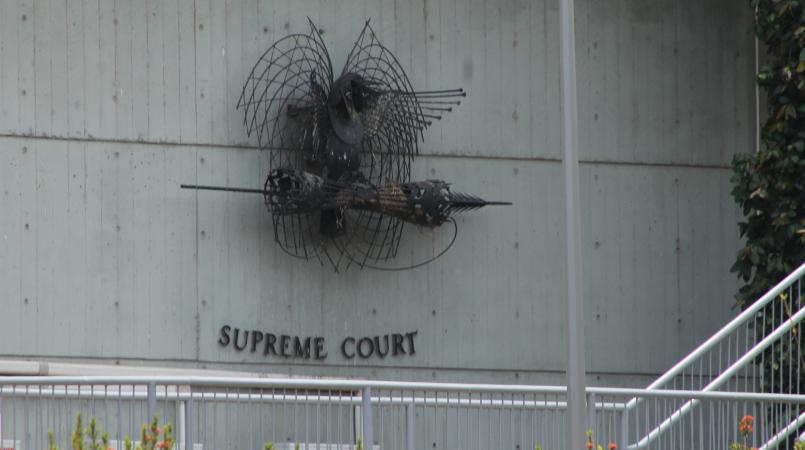
An appeal that was filed by eight Air Niugini pilots challenging their termination last year has been dismissed by the Supreme Court.
The dismissal of the case also means the interim relief of March 23, which stayed their termination as well as eviction from Air Niugini’s accommodation, was also discharged.
Captains Joseph Kumasi, Boris Ageda, Vincent Tongia, Benjamin Lopa, Norman Daniel, and first officers Elijah Yuangi, David Seken and Abel Kanego, were terminated in September over allegations of misconduct.
They filed a judicial review in the National Court and a stay against their termination was granted on Oct 7, 2016.
That stay was dismissed on February 7, when the National Court ruled that Air Niugini is a company, subject to private authority and the employment of the pilots and their termination was not reviewable.
The National Court ruled that the State may control Air Niugini but it was unclear how the State comes in when dealing with disciplinary processes and dismissal of employees.
Kumasi, Ageda, Tongia, Lopa and Daniel were employed under the contract, “Air Niugini Pilots Contract 2015” while Yuangi, Seken and Kanego were employed as cadet pilots under an industrial award, the National Airline Employees Association of PNG.
They appealed against the National Court’s decision, dismissing the judicial review in the Supreme Court.
They filed the appeal on six grounds. They allege the National Court judge made an error in dismissing the review on the ground Air Niugini was a private authority.
They claimed that Air Niugini was a “public authority”, established as a public statutory corporation by section 13 of the National Airlines Commission Act 1973.
Leave was allowed for the Supreme Court to hear the appeal on March 23.
This appeal was dismissed after a three-judge Supreme Court Bench heard submissions from their lawyer and Air Niugini on their termination.
Air Niugini submitted in court that the primary judge (National Court) was correct to find the dispute was of a private law nature and was not properly the subject of a judicial review.
The Supreme Court agreed with the National Court’s earlier decision.
“In our view it is clear the primary judge was correct in concluding that judicial review was not available to the appellants (pilots) in relation to Air Niugini’s decision to terminate their employment,” Deputy Chief Justice Sir Gibbs Salika, Justice Ellenas Batari and Justice Berna Joan Collier ruled.
The court ruled that Air Niugini is not a public body and their relationships with the pilots is sourced in private law and not public law.
The three judge Supreme Court bench said Air Niugini is a company incorporated under the companies act and has the legal capacity to enter into legal agreements, similar to that of the pilots before the court.
The eight pilots were terminated after they refused to attend to the company’s approved doctor for a second medical opinion after they provided medical certificates for days they missed work on.
They were also terminated for failing to report for duty for reasons of security concern, and sharing Facebook posts that called for civilians not to go for work during the month of July last year.
(Loop PNG file picture)
